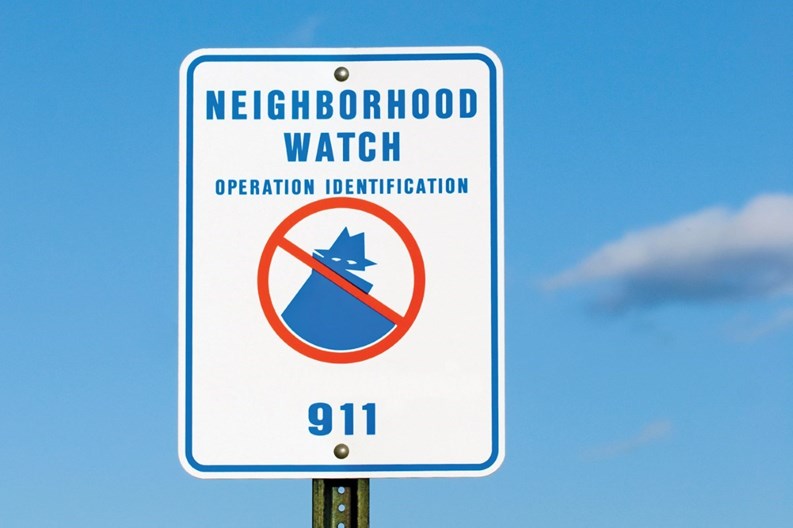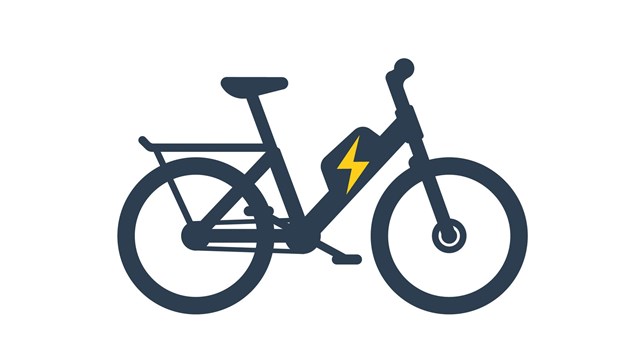When it comes to our homes, nothing is more important than feeling safe. We want to know that our kids can ride their bikes, we can walk the dog at night, or go on vacation without wondering what will happen while we’re gone.
Although many believe that high-tech systems and private security firms are the only way to achieve those goals, there are a number of simple, common sense approaches to safety that can also be effective.
Above all else, a safe community is a community that knows itself well. “Look back to the 1940s and 1950s when neighborhoods were safer places,” says Matt Peskin, executive director of the National Association of Town Watch. “It was because everyone knew their neighbor. People looked out for each other. They hung out with the cop that walked their beat.”
Get to Know “Normal”
Knowing your neighbor doesn't mean people should be spending their days spying on their fellow HOA members. “But you should at least know their first names,” says Sgt. Michael Lawrence, crime prevention officer for the City of Shelton Police Department in Connecticut, and understand a bit about what constitutes “normal” activity at your community association. Lawrence cites an example of a person who saw a moving van pull up to their neighbor’s residence, wondering how they hadn’t known they were moving. It turns out they weren’t—someone was stealing the contents of their unit.
In the event you spot an individual appearing out of place or suspicious, "Never approach someone on your own," says Peter V. Christiansen, president of Protection Plus Security Corporation, a company which services New York and New Jersey. "Call the police or your on-site security team. If you can get a basic description of the person, exactly where they are being suspicious and any vehicle description, this will all be helpful to the police when they arrive. There is safety in numbers so retreat to an area where there are people you know. "
It’s also important for management to develop an on-going relationship with local law enforcement. Peskin suggests inviting police officers to visit and speak to association residents. “Whether it’s city or county officers, they’ll come out to talk with people” and help educate on safety and also take questions, Peskin says. “This give and take [between] residents and officers is really important. It makes people more comfortable with local law enforcement. Most people only have contact with the police when something goes wrong. This breaks walls down and helps energize residents.”
Christiansen suggests that HOA administrators should first and formost have a plan. "It is essential to have a safety plan in place wherever people live or work. This plan needs to cover the basics for notification of a potential threat to residents, as well as the evacuation/invacuation procedures for the property. The plan should also provide for a list of must have items in the event of an emergency- fire extinguisher, first aid kit, flashlights, batteries, adequate water storage, ample food and medical supplies and the locations of emergency shelters. Condo and HOA communities should [also] enlist the help of a professional security company when preparing this plan."
Management also should keep their residents informed of the on-goings within the HOA and the community at large. “We can give general bulletins through e-mail or tell you what type of crime is trending in that neighborhood,” Lawrence says. But, he adds, sometimes that kind of information excites people and may make them nervous. It’s a delicate balance. No one wants to scare residents but unfortunately, “we’re not living in Mayberry anymore,” Lawrence says.
Perhaps the best way to deter crime is simply to follow some basic guidelines and make sure key tools for prevention are in place. Lighting, for example, is absolutely key for safety. That can mean installing motion lights in dark areas inside a garage or putting lights on a timer when out of town or away for the evening.
“Criminals prefer a soft target, and if they perceive that a building has no security precautions in place it then becomes a target," says Christiansen. "If the building management takes the time to install proper interior and exterior lighting, solid window and door locking devices, cameras and a security guard patrol, the odds of being perceived as an easy target drop dramatically.”
How lighting is used can be just as important as how much of it there is. “You have to make sure the light is directed properly,” Lawrence says. “You don’t need a hundred lights if you put in the proper lighting and make sure it’s pointing in the right direction.”
The same goes for interior spaces like laundry rooms and storage areas. Bad elements are drawn to darkened areas where they hope to go unnoticed—which is why it’s important, in open common areas, to provide as much light as possible for as many hours of the day as possible.
Video as Deterrent
Video cameras provide another relatively inexpensive way to deter criminals. In fact, the pros say that even the appearance of a video surveillance system can be powerful. For someone looking to steal or vandalize, a quick glance up at a camera may scare them off – whether it’s actually recording anything or it’s a dummy. But, Lawrence says, operational camera systems are becoming cheaper every day and can be worth the investment.
And when it comes to easy targets, law enforcement officials and private security professionals alike agree that nothing is worse than unlocked doors or windows. It’s worth it to spend a bit more on simple things like deadbolts and viewfinders in the door. It’s important, too, to make sure that other accessible areas in a home or building are secured. For example, improperly installed window air conditioners can offer relatively easy access for someone with a screwdriver and the ability to lift 50 pounds.
Management, too, should not be shy when it comes to asking questions of new employees or service providers. Lawrence strongly advises getting background checks wherever possible. People working within a community “know the ‘m.o.’ of the complex," he says. "They have free rein and can observe what’s going on." And when it comes to individual units, “You should be around when workers are in your house,” adding that he’s heard of people who leave when painters are redoing their living room and later find checkbooks or credit cards missing. “The temptation is there,” Lawrence says.
Ultimately, safety and well-being is about listening to instincts. “If you pull into an underground garage and don’t feel like you want to park there, then don’t,” Lawrence says. If it looks like something strange is going on down the street, phone the police. If you see someone in the laundry room you don’t know, then leave and let someone know. As the old adage goes, it’s always better to be safe than sorry.
Whether it’s in the form of a formal neighborhood watch program or just a willingness to keep an eye on someone’s house while they’re on vacation, safety is also about people pulling together and watching out for one another. Common sense and common goals, all for the good of the community.
Liz Lent is a freelance writer and a frequent contributor toThe New Jersey Cooperator.







Leave a Comment